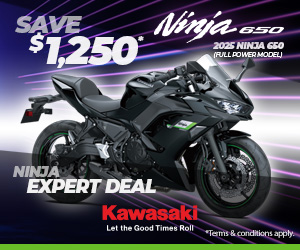Whatever the reason for a gearing change, you need to understand all the pros and cons of your gearing options, reason being, with every change in the direction you wanted to move, will be offset with positives and negatives. So when I make a change I consider at what cost did I get that benefit?
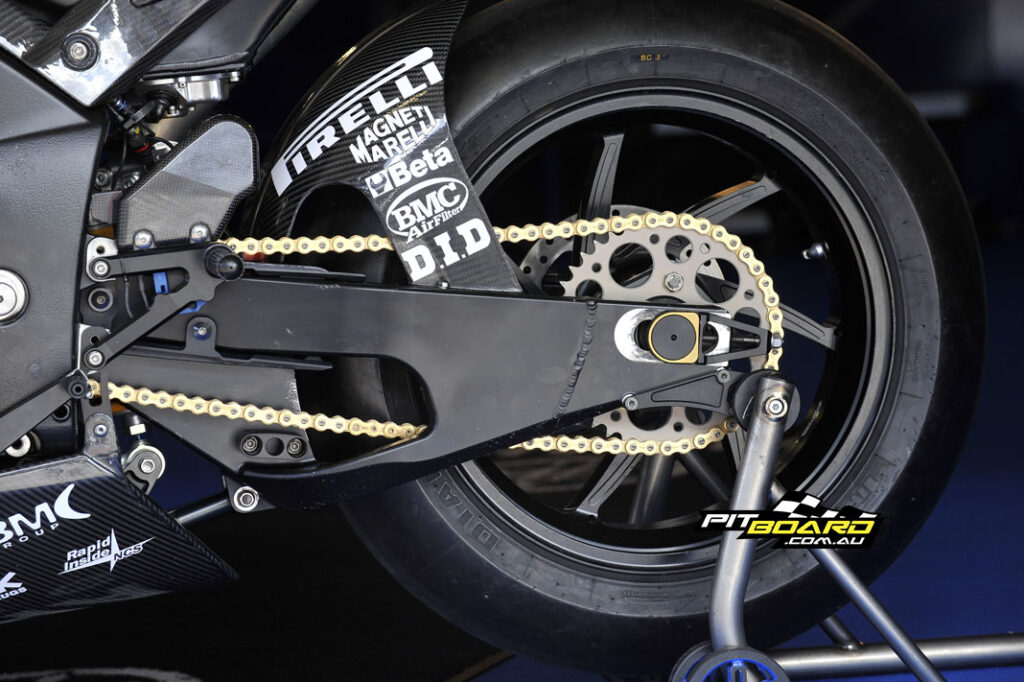
The decision to change gearing is stemmed by the initial want for more power or speed, a holistic view will have you consider how the new gearing will affect following areas; rider input, geometry of your bike both front and rear, corner speed, how many gear change, what we gain in one corner, we lose in another or in an overall lap time?
Check out our other tech tips here…
As a coach I Quite honestly believe gearing has a huge impact on rider development. Gearing a bike around a poor riding habit is not going to help the new rider develop. What I usually find is as the rider improves he or she goes back to an original gearing, so the original problem was a riding problem and not a gearing issue.
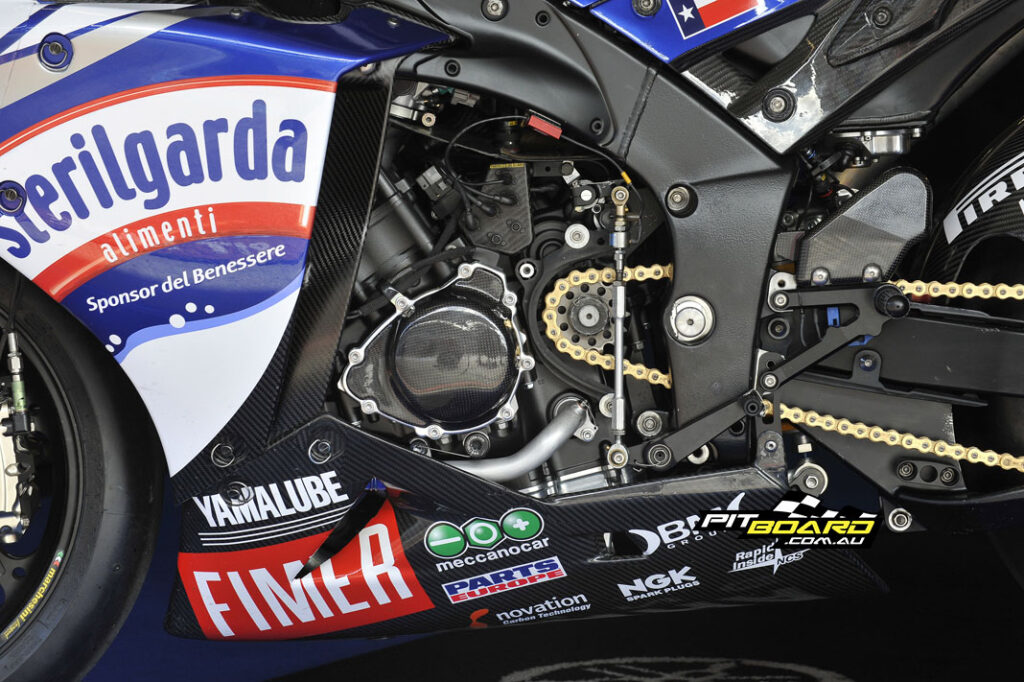
Gearing sounds simple but there are some trial blunders made especially by novices. I know because I made them myself. You know it’s funny how losing can be a real lesson; it’s the pain that makes the lesson stick in your head. Racing was great educator for me, I hated losing, and racing taught you one thing. The past should not equal the future!
With motorcycle road racing, if you did not make a change to what you were doing wrong, then you were getting much the same result at the next race meeting. So I learnt you can never sit on your arse and expect things to change – you had to sit down, work it out and not be complacent, competition tells you that just because you win today does mean you will win tomorrow.
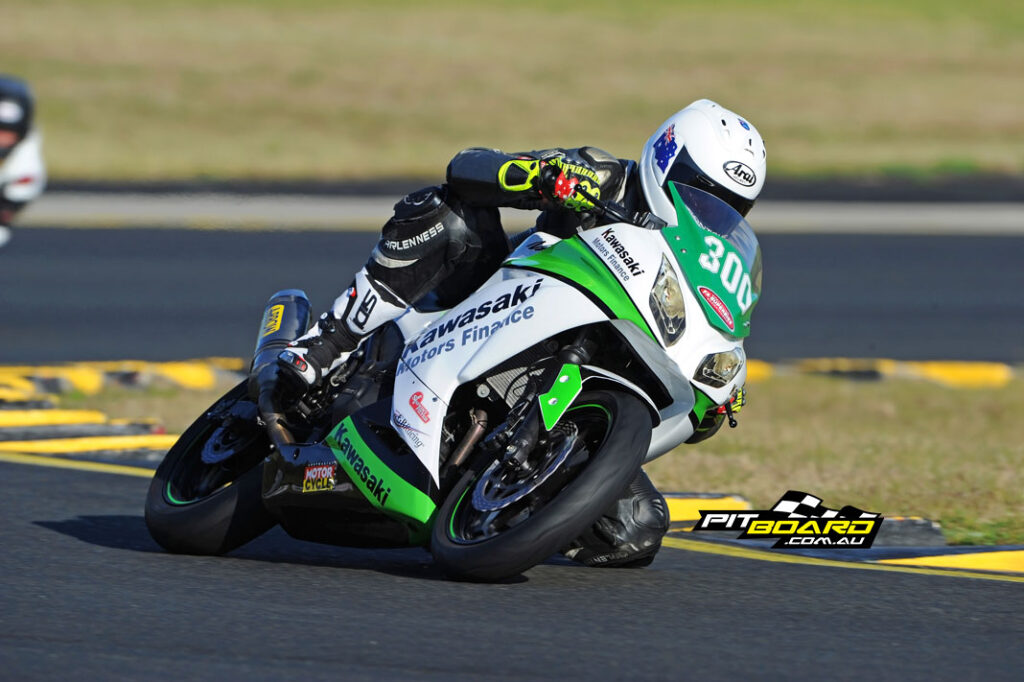
The dynamics of the bike and rider, the bond between the two, is paramount and a critical consideration in gearing decisions, even race strategies will be made around how you set up your bike, especially if you are interested in endurance racing.
It is also very important to understand that gearing doesn’t change the horsepower of the motorcycle, although different gearing on a dyno will change how the dyno reads your engine rpm may reflect a different opinion.
- Reasons for change
Road bikes are usually set up for a range of different conditions so when we race our road registered sportsbikes we are trying to improve lower acceleration in a straight line or out of a particular corner. - Maybe we are at a track where there is a lot of low speed turns requiring bottom power to drive.
- Improve top end speed, especially if we get to a fast track or a track with a large long straight.
- Get better engine performance in certain parts of the track
- Different tyre manufacturers can have the same size tyres but have variances in rolling diameter.
- Running out of rpm
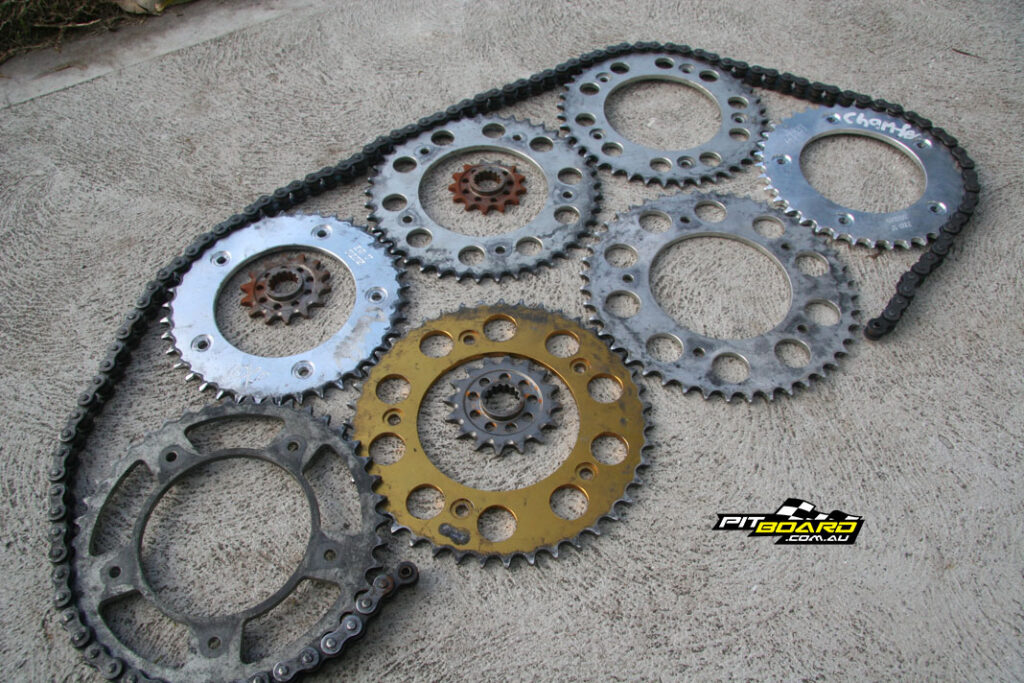
Down sides
- Better bottom end power off the turns maybe great but the top speed of your motorcycle is affected
- Gear engine rpm to your current riding skill and speed.
- Not tuning for the slip stream
- Increase wear and tear on tyres
- Harsher acceleration = harder to get on the throttle earlier
- More engine rpm in turns can make you feel real busy and that you are going faster than you actually are
There are quite a few ways we can change our gearing. Internal gearbox cassette gearboxes in genuine GP bikes and other exotic bikes means you can alter all gears – input and output – to gain an advantage in a particular area without losing out in another area… very good fun but very complex and expensive.
Front sprocket
The larger the sprocket the faster top speed less bottom power, the smaller the front sprocket the better bottom end power less speed. There are issues with changing the front sprocket in the way it pulls the chain and effects swingarm movement and rear squat.
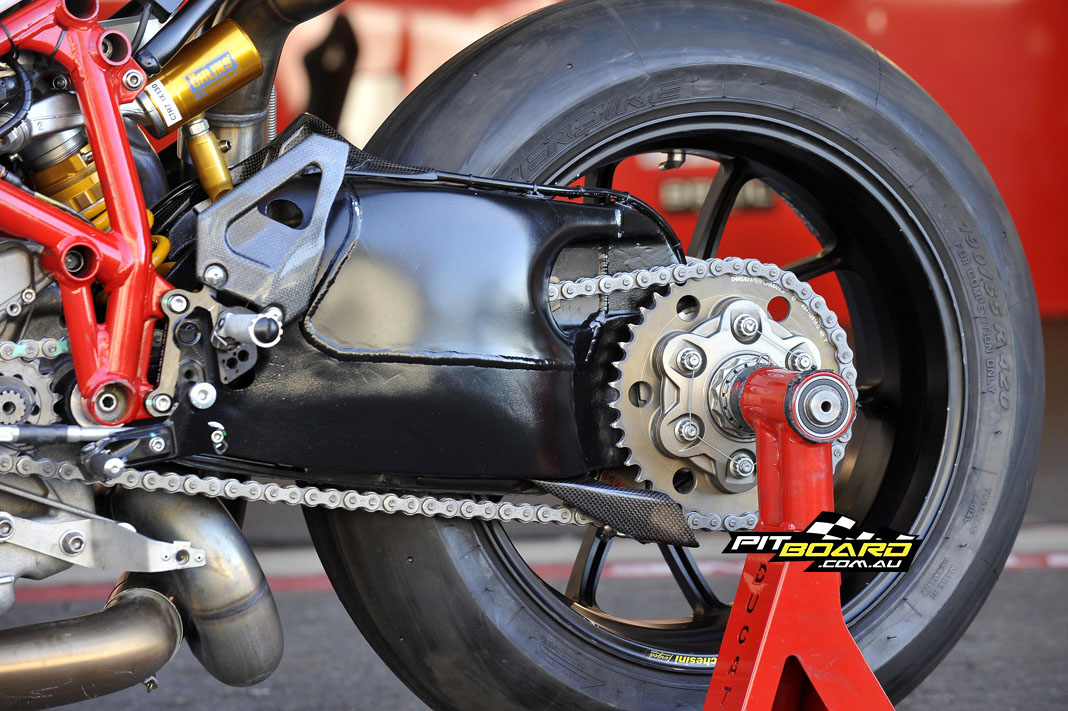
Rear sprocket
When we change the amount of teeth on the rear it work in the opposite to the front. Three teeth up or down on the rear equals one on the front. The issues on changing this sprocket is not as bad as the front, however there are still changes which will affect ride height and wheelbase.
Diameter of wheel
Rolling radius of rear tyre is just the same as your wheel-not every manufacture has the exact rolling radius tyre dimensions, knowing if you have a larger or smaller diameter tyre is critical especially if you have tuned the bike and gearing to a track then you change brand in tyres or model. It should be remembered that larger diameter tyres will also affect you steering geometry.
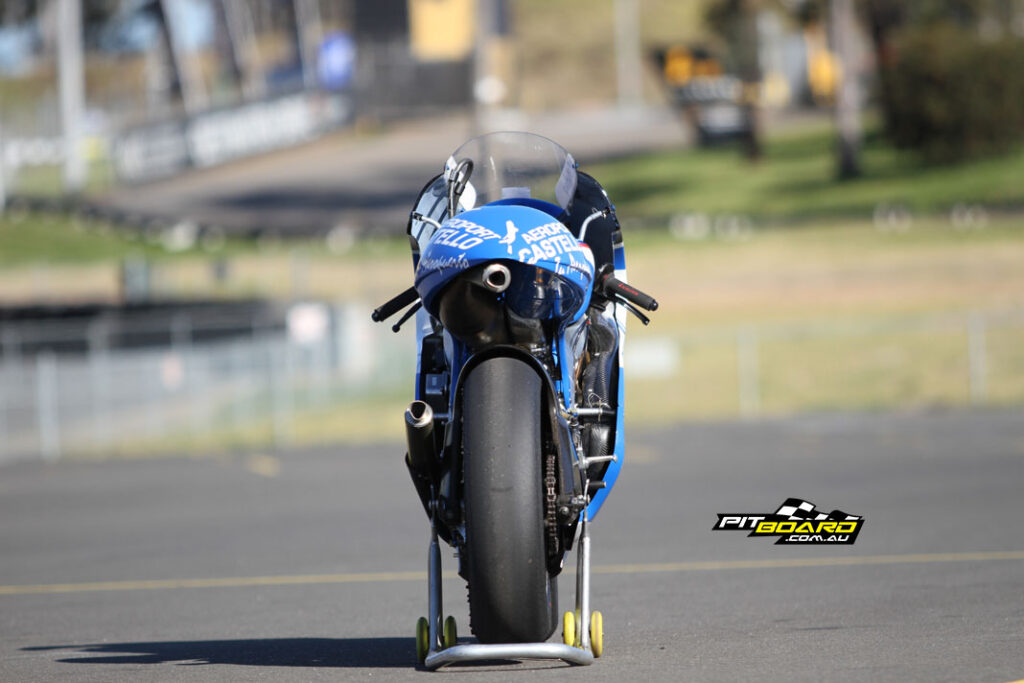
Gear Ratio chart
A gear ratio chart-can be a very effective way of calculating the overall ratio of the front and rear sprocket. The chart should be laminated and kept with track maps and tuning information. I have always used one and it is such a brilliant tool. The ratio can be worked out mathematically using a calculator – divide your rear sprocket i.e. let’s say your motorcycle has a 38-tooth rear sprocket, divide 38 by your front sprocket, which is 14 – this gives you a ratio of 2.714:1.
If we change the front sprocket to say 13 and maintain the same 38 rear this would give a ratio of 2.923:1. A gear ratio chart makes finding these ratios a lot easier and you have a better idea of what options you have available firstly with the sprockets you possess or may even need to buy so you can create a range of front and rear sprockets to fine tune your exact gearing.
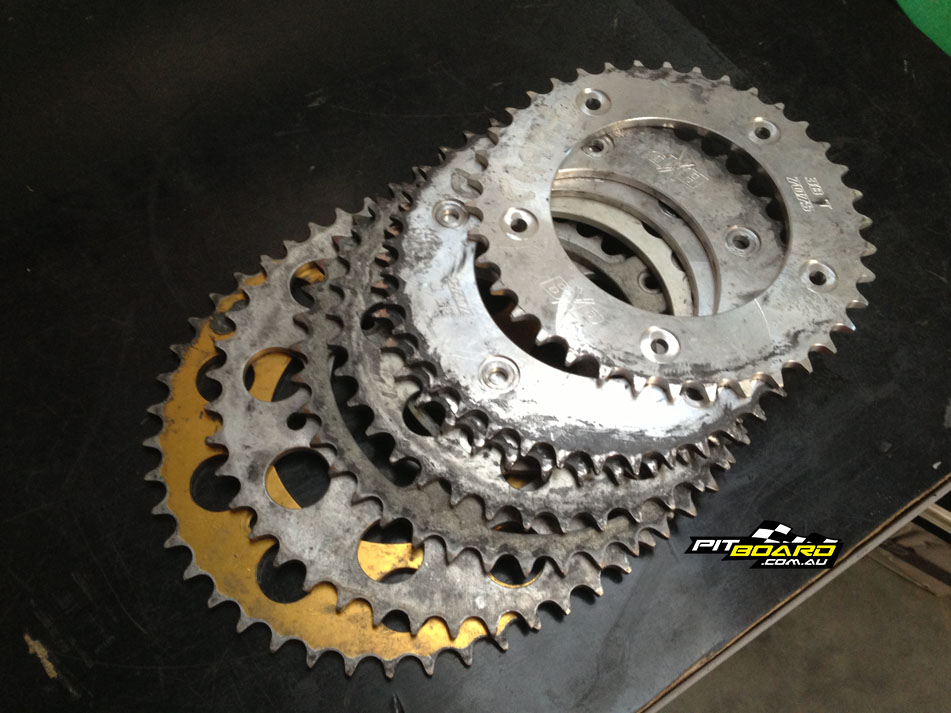
Rider input
When we lean a motorcycle over we use a smaller diameter of the tyre. When this happens, if you are paying attention, you will realise that the rpm will pick up. Likewise as we stand the motorcycle up we increase the rolling radius of the tyre, which also affects the gearing of your motorcycle lowering engine rpm. This means a good road racer or track day punter knows when to pick up the bike and why!
Being able tune your gearing so you can maintain concentration, reduce fatigue, high corner speed, good acceleration and easy motor, is a great advantage, we do this by reducing engine braking, noise, reducing the amount of gear changes we have to do, or just quite simply moving a gear change point to suit an action that makes the lap more efficient. This is a rider skill as much as a tuners skill.
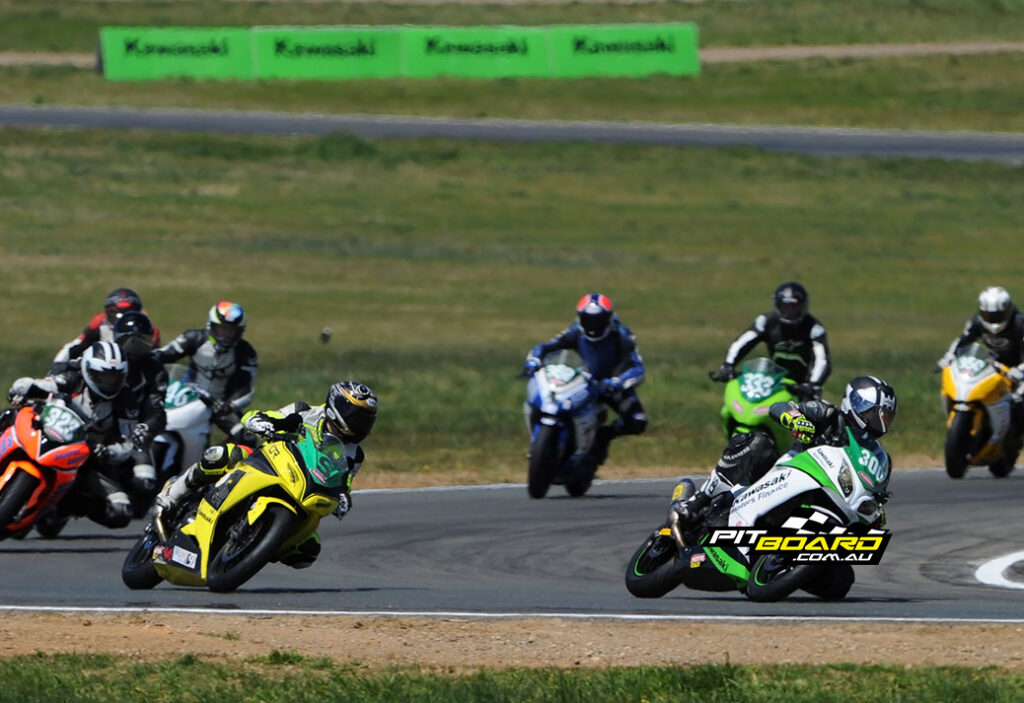
Measuring performance
The measurement of rpm on the exit of every turn can help. The noise of an under geared bike can make us feel we are travelling faster than we are especially when we look at the overall lap time. If you get real smart you may even be able to get a friend to do track splits where you can measure a performance in one part of a track, this great to iron out both riding and gearing on your bike and help you run different lines to make a set-up work.
You will need the following information on your bike set up sheets:
- Map of the track
- Track information (length turns etc).
- Engine hours
- Fuel used
- Weather conditions
- Track surface conditions
- Tyre details
- Suspension settings
- Chassis settings
- Gearing
- Lap times
Record the following info too
- Make a map of gear change points up and down
- Rpm out turns and max rpm on straight
- Acceleration points
- Braking points
- Feeling of harsh acceleration
- Feeling of lack of acceleration
- Weather conditions
Dry conditions allow us to run more corner speed which means we will be able to pull higher gearing. Wet conditions means we are down on grip which has a huge effect on your corner speed so lower gearing. Windy condition may blow you around on the way into and out of turns which can affect your corner speed.
Change in sprockets can have an effect on your chassis set up. Front sprocket is preferred not to be changed from std as it changes the way the chain is pulled and that has a huge effect on the swingarm especially under hard acceleration. Rear sprocket change will affect the rear wheel position which can have an effect on the rear, wheelbase which will also have an effect on the geometry of the bike.
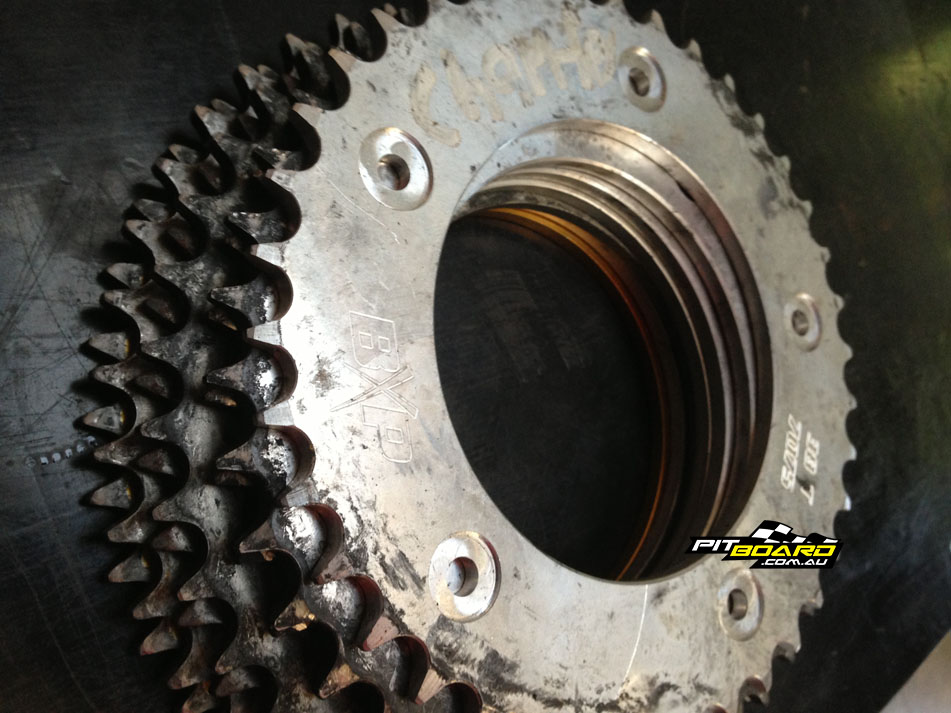
Personal gearing lessons and strategies
One of my racing mates would be over to our pit garage after every qualifying session asking what gearing we were running. We would not disclose it so we could keep the opposition guessing and play with their heads
My mate kept this up for quite a while, so I took this game one step further and I wrote in white marker on the rear sprocket the incorrect gearing. I knew I had succeeded with my little trick when he came to me all despondent asking how the hell we ran such tall gearing. I just laughed.
Bernie tells us some tips to final gearing choices… Words: Bernie Hatton


